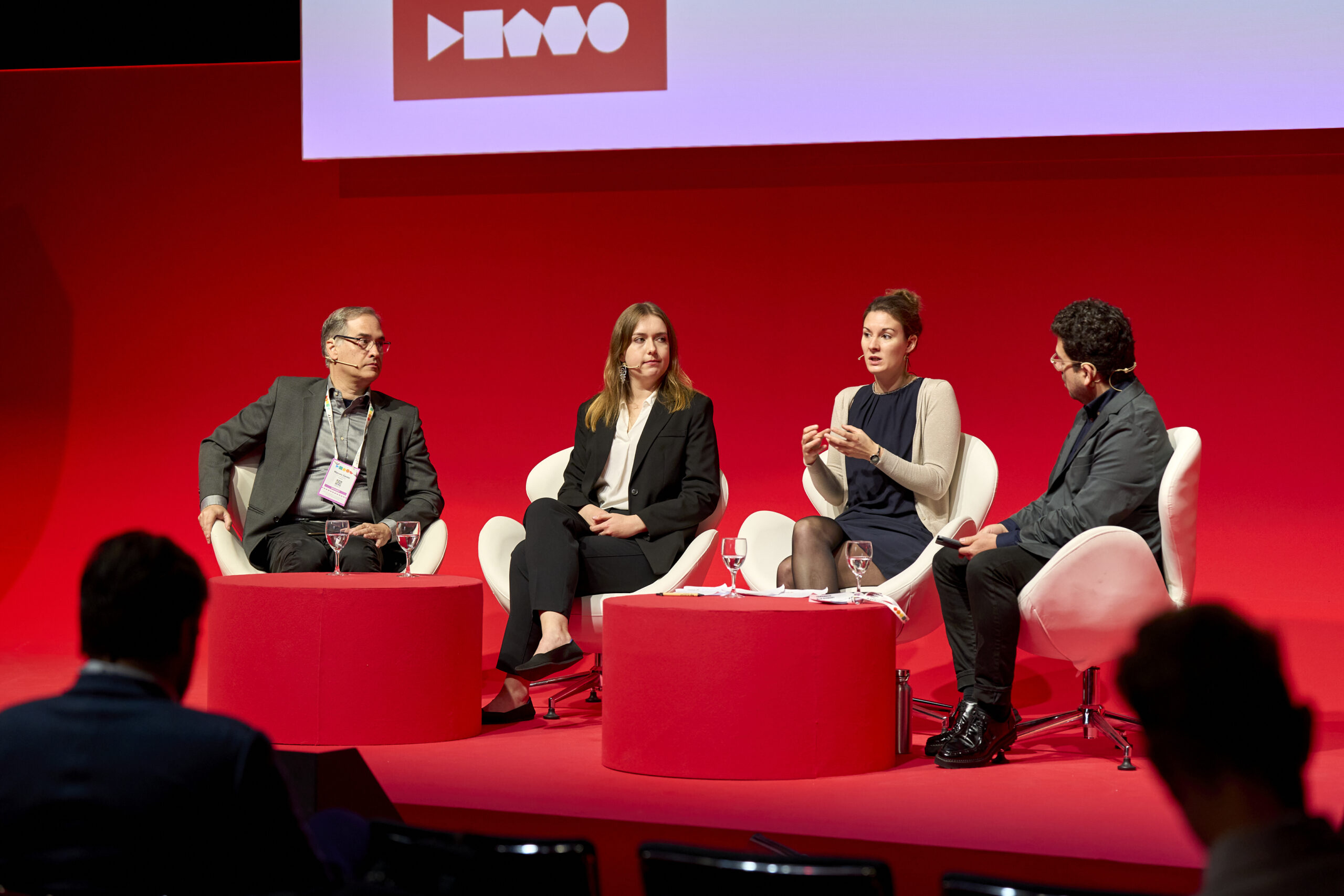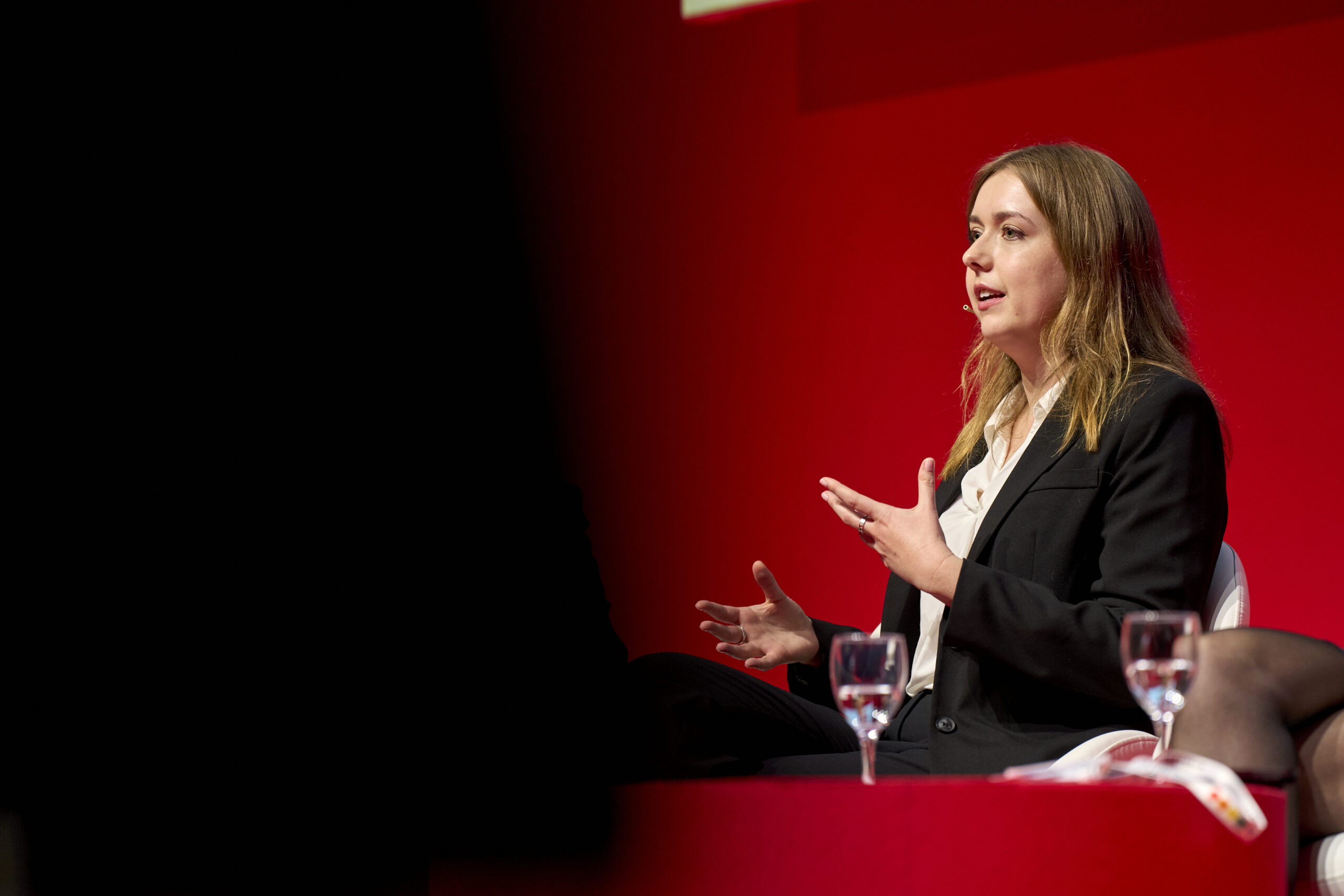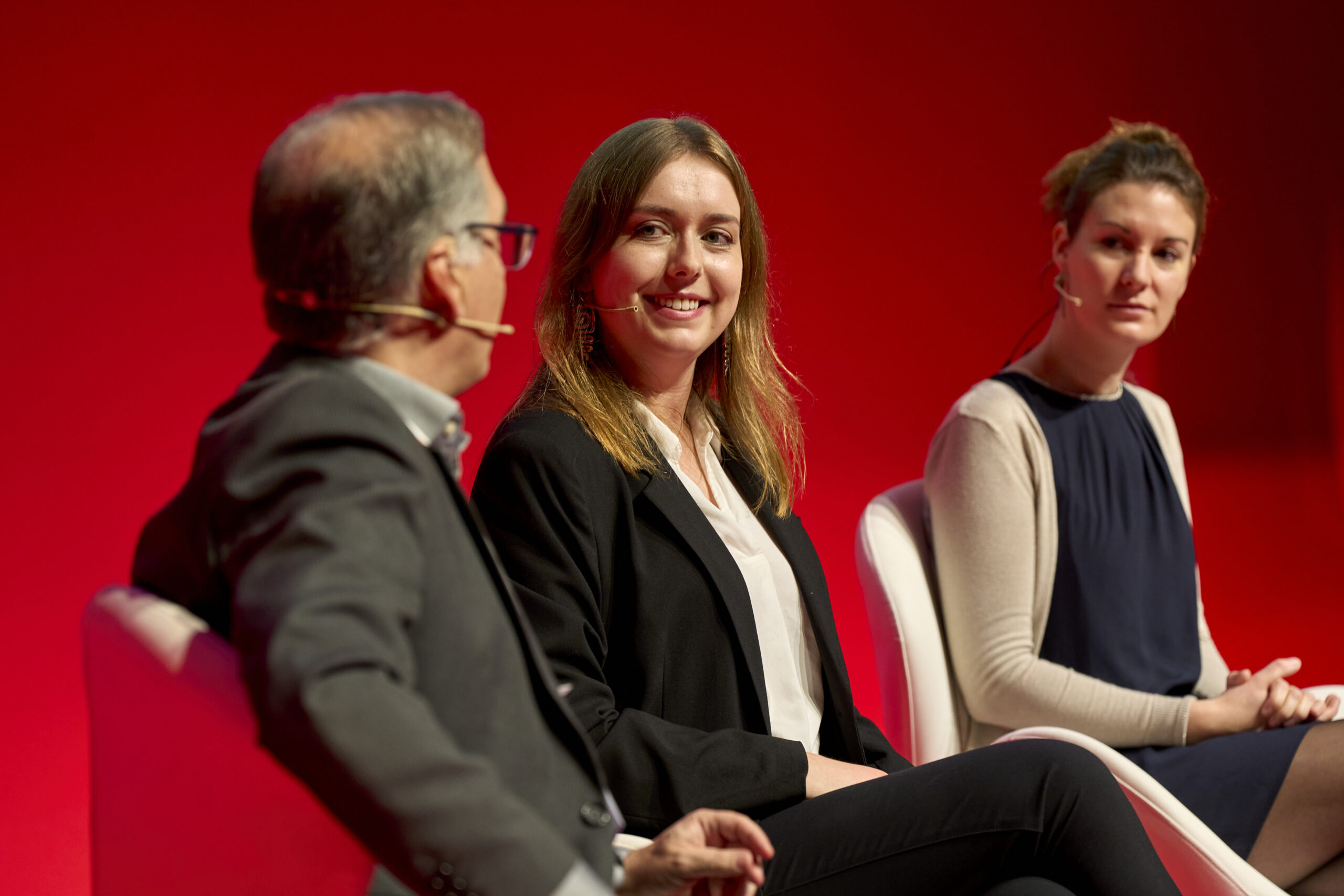Since 2022, Dublin has been working with the Cities Coalition for Digital Rights and UN-Habitat to mainstream digital rights in the public sector. From May 2022 to March 2023, Dublin City Council and Smart Dublin worked as one the four selected cities to pilot Digital Rights Governance Framework.
Smart Docklands, a joint collaboration between Dublin City Council (DCC) and CONNECT Centre at Trinity College Dublin, developed foundational educational modules on digital rights through the Academy of the Near Future engagement program. The modules examined digital rights through the lens of ethics and privacy and three different stakeholders were identified; community members, local authority staff, and young people. After co-developing this learning content with experts in UN-Habitat and Cities Coalition for Digital Rights, three independent workshops were delivered in Dublin in March 2023.
Smart City Expo and World Congress – Barcelona
On the 9th of November 2023, we presented our process in developing the workshops and shared learnings from delivering our work on the Digital Rights Governance Project pilot on a panel discussion hosted by the Cities Coalition for Digital Rights and UN-Habitat: ‘Human Rights in the Digital Era: Lessons From Cities in Europe and Latin America’.
The panel consisted of Claudia Bailey, representing Dublin City Council, along with Marcelo Zander, Undersecretary of Management and Modernisation City of Niterói, Brazil, and Manon Reniers, Project Coordinator, City of Brussels, Belgium.

The conversation on the panel allowed cities in both Europe and Latin America to share approaches and discuss key learnings in the diverse ways each city is working to mainstream digital rights in the public sector digital transformation. The collaboration among the cities involved with the Cities Coalition for Digital Rights facilitates greater interdisciplinary learnings and implementation plans for mainstreaming digital rights.
We chose to prioritise education about digital rights through in-person workshops. For the local authority audience, it was crucial to connect people from different departments to increase interdepartmental understanding and facilitate collaboration through the education about digital rights in the workplace. Our work on digital rights directly links to the existing Irish Public Sector Equality and Human Rights Duty, which protects and upholds human rights in Ireland. As digital rights are human rights that are protected in the online space, it is very important to also protect the digital rights of citizens in this digital age.
We shared how even though our workshops targeted different age groups and demographics, it allowed the creative flexibility to address digital rights in different ways: the youth workshop gave students the opportunity to express their opinions and viewpoints on various topics through an interactive walking debate. Topics discussed included the use of AI in the classroom, data privacy on social media platforms, and unconscious bias in technology. The community workshop identified the most important thematic areas in digital rights for residents – privacy, safety, and security – and discussed this through a people-centred smart city approach.

Going forward, Dublin City Council is embracing the digital transformation and will be rolling out more digital services to meet the needs of citizens and communities. It is crucial that the Council is conscious of preserving, protecting and promoting data privacy, ethics and digital rights as we procure and implement new technologies.
